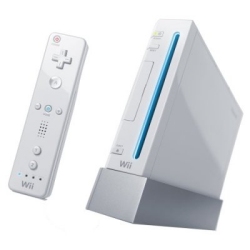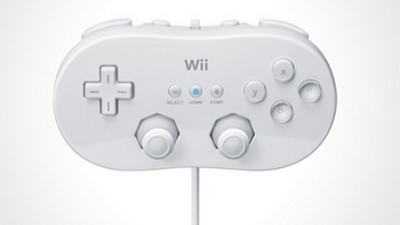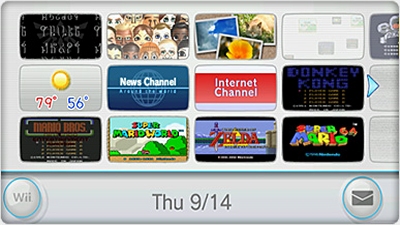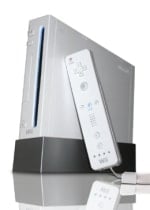Can Nintendo’s Wii hold its own against two bigger and more powerful machines?
The Nintendo Wii has surprised all naysayers by defying expectations with its performance and popularity ever since it was announced. First, Nintendo dropped out of the console wars by claiming not to be competing with Sony and Microsoft, announcing that their next console would be significantly and purposefully less powerful than the Xbox 360 or the Playstation 3. Then Nintendo dropped the name Revolution in favor of the snicker-inducing and toilet humor susceptible Wii. Somehow, despite logic, tradition, and the advice of fanboys, Nintendo’s choices seem to be right.

Nintendo’s Wii is one of the hottest products since its release, outselling even the PS3, although that it partially due to the PS3’s rarity in comparison to the Wii. However, after the holiday season has come and gone and the initial hype of a new console has died down, will the Wii still sell strongly? Simply put, is the Wii worth it?
Physically the Wii is a very pretty gaming machine. It currently has a pearl white casing and the thickness of three DVD cases, making it much smaller than the Xbox 360 or the PS3. There is a self-loading bay on the front that takes Gamecube discs as well as larger Wii games, and the soft blue lighting around the loading bay (that lights when you have a message or a delivery on your Wii) is beautiful, fitting nicely with the aesthetic scheme. The Wii also has a port for two Gamecube memory cards, four Gamecube controllers, and a slot for SD memory cards, allowing owner to transfer info, such as digital pictures for the Photo channel, to their Wii.
The first and most obvious advantage that the Wii has over both the Xbox 360 and the PS3 is its pricing. The Wii costs $249, which is refreshing compared to the Xbox 360 costing either $299 or $399 for the core and premium versions respectively and the PS3 costing a whopping $499 or $599 for 20 GB or 60 GB high end model. This is probably one of the biggest advantages to the Wii, especially in the eyes of parents looking to purchase a gaming system for their children. Also, the Wii comes packaged with Wii Sports, which is fairly fun and becomes a tutorial of sorts for the Wii-mote.
The second advantage of the Wii is its most hyped feature – the motion sensing Wii-mote. Instead of chasing the advent of technology by bumping heads against Sony and Microfot for the most powerful system, Nintendo chose to take the route of innovation and the Wii-mote is the result. Shaped like a remote control (hence the name), the Wii-mote allows you to play games based on hand movement. A nunchuk attachment includes some extra buttons and an analog stick, and the combination make for very intuitive controls, even for non-gamers. However, the burden still falls to developers to make games that utilize this setup well. Also, the Wii-motes have a notoriously short battery life and no other method of powering it, unlike the wireless controllers for the Xbox 360 or the PS3.

The third advantage of the Wii (and the biggest in the eyes of Nintendo fanboys) is the inclusion of the Virtual console, which allows gamers to download and play classic Nintendo, SNES, N64, Genesis, and TurboGraphx-16 games. This means that in addition to being able to play every single iteration of Super Mario brothers, gamers can also enjoy Sonic the Hedgehog and Bonk’s Adventure on the same console. The Wii is also backwards compatible with the Gamecube, giving it a formidable library of available games and, more importantly, a potentially formidable library as well.
As of now, the Virtual Console has a few games available with new ones (averaging three to four) releasing every Monday. There is a fairly broad selection, with the newly added Super Mario Bros, Super Mario 64 and Sonic the Hedgehog for platformers, Military Madness and Sim City for strategy buffs, Columns for puzzle fans, and even Soccer, Ice Hockey, and Baseball for gamers that like classic sports titles. There is also Street Fighter II, The Legend of Zelda, R-Type, Toejam and Earl, and Bomberman 93’ among other games. Nintendo has an incredible amount of titles to choose from, but some players undoubtedly think that Nintendo is being a little slow to release the more highly anticipated classics like Super Mario Bros 3, Super Mario World, Phantasy Star, Legend of Zelda: Link to the Past, Chrono Trigger, or classic Final Fantasy titles. However, it is undeniable that all these titles and hundreds more are up for grabs. The games must be bought with Wii points, which translate to 100 Wii points equaling a dollar. As of right now, the pricing plan has NES titles starting at 500 points, TurboGraphx-16 games starting at 600 points, SNES and Genesis games starting at 800 points, and Nintendo 64 games starting at 1000 points. It also may be necessary to purchase a classic controller for some titles, although most can be played with either the Wii-mote or a Gamecube controller. Although the Virtual Console does have definite potential, it has a long way to go before it catches up with Xbox Live Arcade or services like Gametap. However, with its weekly updates and such a vast library to choose from, it seems inevitable that Nintendo will catch up eventually.

The Wii also has a number of other applications, all falling within a channel theme. The Forecast Channel gives weather information globally, and the News Channel obviously doles out news information. The Photo Channel allows users to upload, edit, and display their digital photos, while the Internet channel allows users to surf the net. Most of these channels, while quaint, don’t add much to the gaming experience. The Forecast Channel is fun to play around with, as you can interact with a virtual globe to get forecasts worldwide, but is essentially an interactive Weather Channel with less info. The News Channel has yet to launch. While the Photo Channel is an interesting diversion, the recently released Internet Channel is a relatively cumbersome application, since you have to use the Wii-mote to enter in address with an on-screen keyboard. The Internet Channel is also slow compared to an average computer, although in all fairness it is in its beta stage and seems to have sped up significantly since its release.
